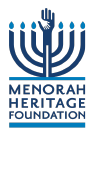Johl Family Kidney & Cancer Research
In October, 1964 the Gus and Mike Johl Fund for Clinical Research was created from multiple donations in memory of Gustav Johl.
Gustav and Mike Johl were twin brothers who were born in Germany and moved to the United States in 1939. Mike settled in Philadephia and Gus moved to Kansas City. Gus was the owner of Rosenstock and Johl, Inc, a Kansas City cattle company. Gus suffered from kidney disease and received one of the first kidney transplants in the country using a kidney donated by his twin brother Mike. Gus was married to Betty and they had three children, Jeff, Judy and Justin.
In 1988 the family changed the name of the fund to the Gus, Judy and Mike Johl Fund Memorial Fund. Judy Johl was Gus and Betty’s daughter who suffered from kidney problems, was on dialysis and died from melanoma at age 36. In 2010, the name and purpose of the fund were broadened to the Johl Family Kidney and Cancer Research Fund.
Jeffrey Johl also suffers from kidney problems and lives in Chicago, Illinois. After he was hospitalized in 2014 and then discharged without any follow up care from the hospital or doctors, his brother Justin and wife Bev, who live in Kansas City, realized how little help can be provided for family members who live in another city without any support group. The Johl family believes that if they can help other ill persons who live in Kansas City without a family support group this would be a worthwhile and helpful use of the Funds. The program will also be of some comfort to those family members who do not live in Kansas City but know that someone will be initially contacting their loved ones to follow up on their care and needs.
Trustees: Justin Johl and Jeffrey Johl
Current Projects:
Johl Transitions of Care – a unique approach to providing support to “high-risk” discharged hospital patients who have little or no family support in the area. The goal is to reduce readmissions to the hospital and visits to the emergency department, increase timely follow-up visits to physicians, improve understanding and use of medications and achieve a higher quality of life.
Once a “high-risk” hospital patient is identified, a Care Manager will visit the patient prior to discharge, and again when the patient gets home. Depending on the need, the Care Manager can help the patient understand his/her discharge instructions, help the patient understand his/her medicines and ensure they will be picked up, help schedule the patient’s follow-up physician appointment, arrange for transportation home from the hospital and/or to and from the follow-up physician appointment, schedule additional Care Manager visits to the home and arrange for in-home caregiving.
